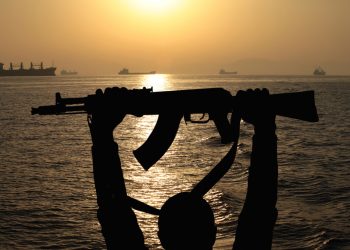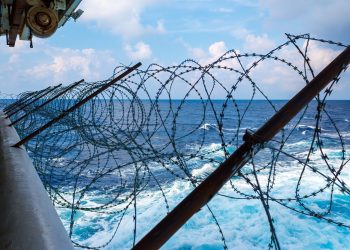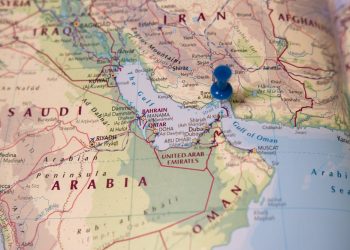After the death of the Iranian commander, Qassem Soleimani by a US drone, the US Maritime Administration (MARAD) officially published an advisory in order to warn the US ships located across the Middle East waterways of the possible Iranian maritime threats.
The Iranian response to this action, if any, is unknown, but there remains the possibility of Iranian action against U.S. maritime interests in the region.
…as MARAD noted in a statement.
As the department further advised, the US commercial vessels must pay attention and coordinate the vessel voyage planning for transits of the Persian Gulf, Strait of Hormuz, Gulf of Oman, North Arabian Sea, Gulf of Aden, and Red Sea with NCAGS (US Fifth Fleet Naval Cooperation and Guidance for Shipping), while meet NCAGS’s recommendations and guidance whenever needed.
In the meantime, the US Fifth Fleet which is based in Bahrain, polices the Strait of Hormuz and other major waterways in the region.
US Naval Forces Central Command (NAVCENT) has and will continue to provide advice to merchant shipping as appropriate regarding recommended security precautions in light of the heightened tensions and threats in the region. NAVCENT routinely advises the merchant shipping community on threats and risks to the unrestricted flow of commerce across the region through our Naval Cooperation and Guidance for Shipping (NCAGS) team.
… said a US Fifth Fleet spokesperson.
In respond to the situation, Iran has claimed that will shut down the only sea passage from the Persian Gulf to the open ocean, the Strait of Hormuz as a part of its revenge.
Iran and the other free nations of the region will take revenge for this gruesome crime from criminal America.
…said in a statement the President Hasan Rouhani several days ago.
Except the US ships, the Royal navy announced that from now on will accompany British-flagged vessels through the Strait of Hormuz in order to provide protection during high tensions in the region, according to the Defense Secretary Ben Wallace.
Concluding, shipping companies, owners, LNG carriers and tankers operators are under high alert following escalated tensions in the Middle East.


































































